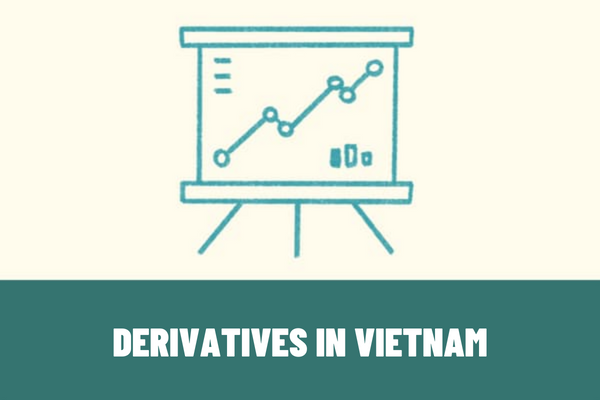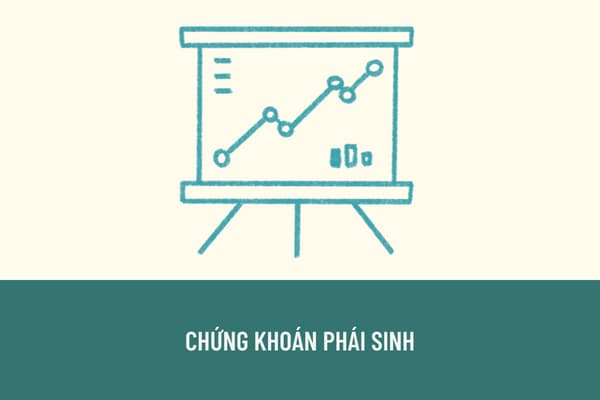What types of derivatives are traded on derivative market in Vietnam?
What types of derivatives are traded on derivative market in Vietnam?
According to the provisions of Clause 1, Article 14 of Decree No. 158/2020/ND-CP, derivatives include the following types:
Derivatives traded on derivative market
1. The following derivatives are traded on the derivative market:
a) Futures and listed options based on underlying assets which are securities, securities indexes or other assets prescribed by the Government upon which the derivative price is based;
b) Forward contracts and options traded by adopting put-through trading method based on underlying assets which are securities and securities indexes on Stock Exchange (SE).
2. Derivatives traded on SE must bear the following contents:
a) Information about the underlying asset such as name, ticker symbol and other relevant information;
b) Information about the derivative, including: name and extent of the contract, trading method, position limit, trading time limit, maturity date, final settlement date, final trading date, listing date, payment method, bid increment, quotation unit, daily trading limit, method for determination of daily settlement price, final settlement price, reference price, and margin;
c) With regard to options, additional information about the type of option (call or put), style of option (the option is exercised only at the expiration date, or the option is exercised at any time before or at the expiration date), and exercise price must be also provided.
Thus, derivatives include the following types:
- Futures and listed options based on underlying assets which are securities, securities indexes or other assets prescribed by the Government upon which the derivative price is based;
- Forward contracts and options traded by adopting put-through trading method based on underlying assets which are securities and securities indexes on SE.

What types of derivatives are traded on derivative market in Vietnam?
What methods does the Stock Exchange use to stabilize the market?
According to the provisions of Article 21 of Decree No. 158/2020/ND-CP, the Stock Exchange will apply the following methods to stabilize the market:
Market stabilization methods
1. SE shall apply one or some of the following methods to stabilize the market and protect investors according to its regulations:
a) Change the number of trading sessions or trading time;
b) Apply or adjust order limit;
c) Apply daily trading limits or circuit breakers;
d) Limit the opening of new positions;
dd) Suspend or cancel trading orders.
2. SE is entitled to partially or fully suspend or resume derivative trading after obtaining approval from State Securities Commission (SSC).
Thus, the Stock Exchange is allowed to change the number of trading sessions or trading time, adjust order limits, apply daily trading limits or circuit breakers, cancel trading orders in order to stabilize the market and protect investors.
How is derivative investment regulated?
According to the provisions of Article 16 of Decree No. 158/2020/ND-CP, organizations and individuals that are allowed to invest in derivatives on the derivative market are as follows:
Derivative investment
1. Entities are allowed to invest in derivatives on the derivative market, except cases where an entity is banned by a competent authority from performing activities related to securities and securities market for a fixed period or permanently due to commission of securities-related offences, and specific conditional investments as follows:
a) Securities companies shall invest in derivatives only after they have been issued by SSC with certificate of eligibility to conduct derivative proprietary trading;
b) Fund management companies shall only use trusted capital from their investment portfolio management to invest in derivatives for the purpose of preventing risks to list of securities they are holding; and use capital sources of securities investment funds or securities investment companies to invest in derivatives for the purpose of risk prevention as prescribed by the law on securities investment funds. Fund management companies shall not use their own capital, borrowed funds and other lawful funding sources to invest in derivatives;
c) Credit institutions and foreign bank branches shall invest in derivatives only after obtaining written approval from State Bank of Vietnam;
d) Insurers and branches of foreign insurers shall only invest in derivatives in accordance with regulations of law on insurance business;
dd) State-owned economic groups, state-owned corporations and state-owned enterprises shall invest in derivatives only after obtaining permission from competent authorities in accordance with regulations of law on management and use of state capital in business operations of enterprises.
2. In the course of investing in or trading derivatives, entities shall themselves be responsible for risks and comply with regulations of law, and avoid committing prohibited acts in accordance with regulations of law on securities and securities market.
Thus, organizations and individuals are allowed to invest in derivatives when meeting the above conditions and themselves are responsible for risks when investing in derivatives.
LawNet
